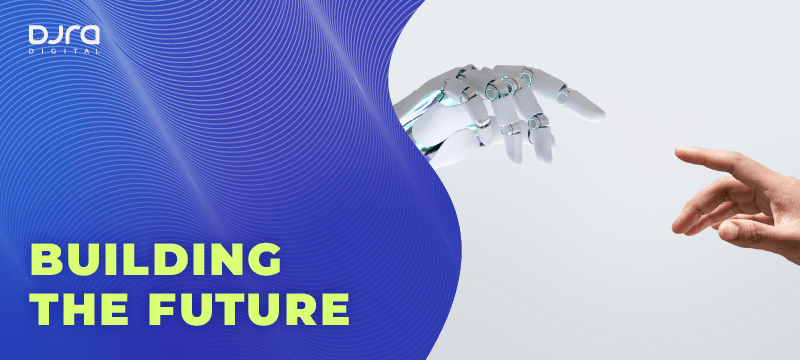Welcome to the first edition of Building the Future: Work Reimagined, a new quarterly blog series dedicated to exploring and understanding the rapidly evolving nature of work, with a special emphasis on the transformative impact of Artificial Intelligence (AI). Each installment will offer insights, examine the latest AI-driven technological advancements, and provide actionable guidance to help organizations proactively adapt to these developments. Actively engaging with these transformations is essential for businesses and individuals to remain relevant, resilient, and prepared for what lies ahead.
We are entering an era defined by organizations that deeply integrate AI into their operations. This new organizational blueprint blends machine intelligence with human judgment, creating systems that are AI-operated but human-led. Central to this transformation is the emerging role of the "human orchestrator," professionals who strategically guide teams composed of both humans and AI agents. These orchestrators manage human creativity and collaboration, as well as the seamless integration of AI capabilities, resulting in unprecedented efficiency and innovation.
How AI is Shaping the Future
AI is at the heart of redefining productivity and reshaping workplaces. Generative AI and intelligent agents have begun to revolutionize workflows across various sectors, from automating routine administrative tasks to offering deep insights for strategic decision-making. Recent surveys indicate that 82% of business leaders anticipate extensive integration of AI agents into their operations within the next 18 months. This fundamental shift redefines job roles and organizational structures, positioning humans to focus more on strategic oversight, creativity, and complex problem-solving.
AI agents can handle repetitive, time-consuming tasks, significantly reducing workloads and allowing human workers to concentrate on higher-value activities. The role of human orchestrators becomes critical, managing and optimizing these agents, ensuring their tasks align with organizational goals, and enhancing overall productivity.
The Current State: Challenges and Opportunities
The pace of technological advancement, especially AI, has dramatically accelerated, creating both opportunities and challenges. Current business demands increasingly outpace human capacity, with over half of business leaders indicating that productivity must significantly improve. Simultaneously, studies suggest that employees today spend nearly 40% of their workday managing digital distractions, such as constant notifications, frequent virtual meetings, and an overload of digital tools. These distractions significantly impact their ability to maintain focus and achieve deep, meaningful productivity.
To effectively manage these increasing demands, organizations must rethink processes, roles, and structures, adopting a more agile and proactive approach. Implementing AI-driven tools to automate routine tasks and mitigate distractions can help create environments conducive to deep, focused work. This approach enhances job satisfaction by allowing employees to engage more deeply in meaningful, creative, and strategic activities.
Industry-Specific AI Transformations
AI’s impact over recent years has notably begun to reshape several industries:
- Agriculture: AI-driven analytics and predictive technologies promise to significantly improve crop yields, resource efficiency, and sustainability.
- Finance: AI-driven robo-advisors and automated portfolio management systems have already increased accessibility to financial services and improved decision-making accuracy.
- Healthcare: AI-powered diagnostics, telehealth systems, AI agents, and personalized medicine are greatly enhancing patient care and streamlined operations.
- Trades: AI-based predictive maintenance and real-time monitoring systems have improved safety and productivity within skilled trades.
- Transportation: AI-driven autonomous vehicles and intelligent logistics systems are transforming efficiency, safety, and sustainability.
Preparing for an AI-Enhanced Future
Future editions of this series will further explore the dynamic role AI plays in redefining human experiences in professional and customer contexts. We'll discuss how these technological advancements directly influence daily workflows, challenge traditional norms, and highlight transformative developments within specific industries. While AI remains our core focus, we will also acknowledge complementary technologies such as robotics, IoT, and quantum computing that further amplify these transformations.
As we navigate these changes, it is crucial to foster a workplace culture that prioritizes human creativity, strategic thinking, and meaningful engagement, supported by AI-driven efficiency. By thoughtfully integrating AI into workflows and empowering human orchestrators, organizations can create environments that significantly enhance productivity, creativity, and overall job satisfaction.
If your organization is ready to embrace these transformations, contact Dura Digital today. Our team of experts is here to guide you through every step of this exciting journey.

